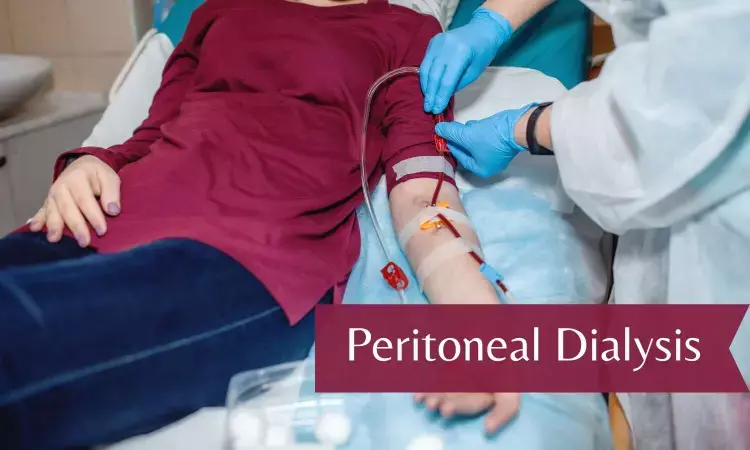- Home
- Medical news & Guidelines
- Anesthesiology
- Cardiology and CTVS
- Critical Care
- Dentistry
- Dermatology
- Diabetes and Endocrinology
- ENT
- Gastroenterology
- Medicine
- Nephrology
- Neurology
- Obstretics-Gynaecology
- Oncology
- Ophthalmology
- Orthopaedics
- Pediatrics-Neonatology
- Psychiatry
- Pulmonology
- Radiology
- Surgery
- Urology
- Laboratory Medicine
- Diet
- Nursing
- Paramedical
- Physiotherapy
- Health news
- Fact Check
- Bone Health Fact Check
- Brain Health Fact Check
- Cancer Related Fact Check
- Child Care Fact Check
- Dental and oral health fact check
- Diabetes and metabolic health fact check
- Diet and Nutrition Fact Check
- Eye and ENT Care Fact Check
- Fitness fact check
- Gut health fact check
- Heart health fact check
- Kidney health fact check
- Medical education fact check
- Men's health fact check
- Respiratory fact check
- Skin and hair care fact check
- Vaccine and Immunization fact check
- Women's health fact check
- AYUSH
- State News
- Andaman and Nicobar Islands
- Andhra Pradesh
- Arunachal Pradesh
- Assam
- Bihar
- Chandigarh
- Chattisgarh
- Dadra and Nagar Haveli
- Daman and Diu
- Delhi
- Goa
- Gujarat
- Haryana
- Himachal Pradesh
- Jammu & Kashmir
- Jharkhand
- Karnataka
- Kerala
- Ladakh
- Lakshadweep
- Madhya Pradesh
- Maharashtra
- Manipur
- Meghalaya
- Mizoram
- Nagaland
- Odisha
- Puducherry
- Punjab
- Rajasthan
- Sikkim
- Tamil Nadu
- Telangana
- Tripura
- Uttar Pradesh
- Uttrakhand
- West Bengal
- Medical Education
- Industry
Cuff-Shaving and NPWT Promising For Managing Refractory Peritoneal Dialysis Catheter Infections: Study Reveals

China: A recent study from a single medical center in China has shed new light on managing refractory exit-site and tunnel infections (ESI and TIs) in patients undergoing peritoneal dialysis (PD).
The research published in BMC Nephrology revealed that combining cuff-shaving (CS) with negative pressure wound therapy (NPWT) is essential for eliminating infection sources and greatly enhancing the durability of PD catheters. This integrated surgical approach presents a promising method for managing persistent exit-site and tunnel infections in PD patients.
Refractory ESI and TI pose significant complications for patients on peritoneal dialysis, often leading to prolonged infections and jeopardizing the function of PD catheters. Traditional treatments have sometimes proven inadequate in managing these persistent issues, prompting the need for more effective strategies. Jiaxiang Ding, Life Science Park of Zhongguancun, Changping District, Beijing, P.R. China, and colleagues compared the outcomes of surgical intervention, notably the cuff-shaving procedure coupled with negative-pressure wound therapy, and conservative management strategies for patients with refractory ESI and TI.
For this purpose, the researchers retrospectively reviewed patients who underwent PD at our center, focusing on the incidence and management of ESI and TI. They assessed and compared treatment outcomes by examining ESI scores, ESI and TI frequency, identification of causative microorganisms, and the duration of catheter survival or the time until catheter removal.
The following were the key findings of the study:
- 97 episodes of catheter-related ESI and/or TI across 71 patients were identified with an incidence rate of 0.15 episodes per patient-year.
- Of the 23 patients with refractory ESI and/or TI, surgical intervention was performed in 8, while 15 chose conservative management.
- In the one-month follow-up, patients who underwent CS combined with NPWT showed no complications such as leakage, and their local symptoms resolved completely.
- The mean PD catheter survival time was significantly longer in the surgical group (29.38 ± 7.25 months) than in the conservative group (7.86 ± 2.13 months).
- Surgical intervention demonstrated a significantly higher therapeutic efficacy and extended catheter survival.
The findings showed that for persistent exit site infections and tunnel infections, especially those caused by Staphylococcus aureus, a combination of surgical removal of the superficial catheter segment and negative pressure wound therapy can be highly effective.
"This method helps to address and eliminate inflammatory lesions, thereby extending the catheter’s usability. Given the severe prognosis and increased risk of peritonitis with Staphylococcus aureus infections, timely intervention is essential for better patient outcomes," the researchers wrote.
"Additional research is required to determine the best timing for surgery involving excised external cuffs and to assess the long-term effects of combining catheter removal with negative pressure wound therapy (NPWT) and tunnel reconstruction on catheter survival," they concluded.
Reference:
Yang, Q., Ren, X., Fang, X. et al. The efficacy of cuff-shaving combined with negative pressure wound therapy in refractory exit-site and tunnel infections: a single center experience. BMC Nephrol 25, 273 (2024). https://doi.org/10.1186/s12882-024-03714-8
Dr Kamal Kant Kohli-MBBS, DTCD- a chest specialist with more than 30 years of practice and a flair for writing clinical articles, Dr Kamal Kant Kohli joined Medical Dialogues as a Chief Editor of Medical News. Besides writing articles, as an editor, he proofreads and verifies all the medical content published on Medical Dialogues including those coming from journals, studies,medical conferences,guidelines etc. Email: drkohli@medicaldialogues.in. Contact no. 011-43720751


